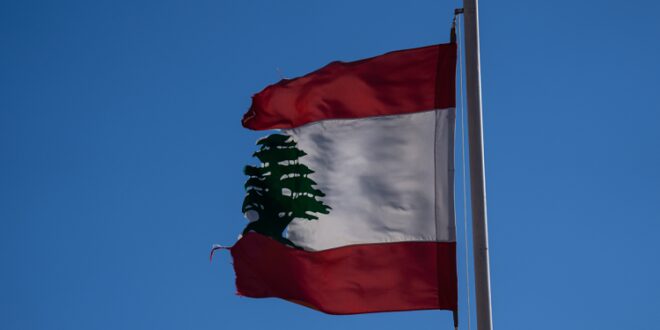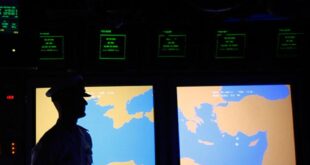The assassination of Hezbollah’s secretary-general, Hassan Nasrallah, marks an inflection point that will redefine the security landscape of the Middle East. His deputy, Naim Qassem, has pledged “continued resistance,” claiming Hezbollah was steadfast and will not retreat, while Israel has pressed ahead with a ground invasion of southern Lebanon. The United States must act decisively to ensure this is the last war between Israel and Lebanon.
In a matter of days, Hezbollah — once considered Iran’s crown jewel and blueprint for solidifying its chokehold on the region — has been strategically decapitated, shattering three long-held myths in one blow.
Myth one: Hezbollah and Iran’s proxies are undefeatable forces, destined to win wars of attrition and dictate the region’s security landscape. Iran’s grand strategy, aimed at forcing the US out of the Middle East, is unraveling before our eyes. Washington must not blink.
Saudi Arabia’s former head of intelligence once famously remarked that “Iran is a paper tiger with steel claws.” Betrayed by overreach, those claws — its proxies that have battered states to failure across the region — have now become liabilities for an Iranian regime singularly focused on its own survival. Iran’s hubris can be understood in the context of a US strategy advanced by the Obama administration that focused on the nuclear file while downplaying the significance of Iran’s malign regional behavior. This approach inadvertently reinforced Iran’s confidence in its grand strategy and the perception that the “Axis of Resistance”— a network of armed proxies, like Hezbollah, Hamas, the Houthis, and Iranian militias in Syria and Iraq — was unmovable.
Myth two: Iran will directly intervene to save its proxies and ignite a full-scale regional war. Nasrallah, the most prominent figure in this network, personified Hezbollah’s central role as a mentor and partner in the Axis of Resistance. Hezbollah’s decision to open a limited front with Israel in support of Hamas on Oct. 8, 2023, demonstrated the full initiation of the Iranian-backed strategy of unified fronts, whereby Tehran’s proxies formed an interconnected theater that allowed it to project power and threaten its adversaries, all while diverting attention from its direct involvement. The assassination of Nasrallah and the elimination of Hezbollah’s leadership in a matter of days sent an unmistakable message: Iran cannot and will not protect its most prized asset. Tehran’s call for five days of mourning while its foreign ministry made clear it would not deploy forces to assist Hezbollah send a stronger one: Iran will concede its proxies to ensure its own survival.
To be clear, Iran’s second missile strike on Israel, whose only reported casualty so far is a Palestinian, deserves attention but it should be seen for what it was: a largely theatrical attack that exposes Iran’s precarious position. After four decades of building up Hezbollah, its primary regional ally has been publicly decapitated. Iran’s failure to decisively respond as Israeli forces advance into Lebanon is fueling frustration not just among Hezbollah’s base but across its entire network of proxies. If Iran can so readily abandon Hezbollah in its most critical hour, why should any of its allies expect any different? As Iran watches decades of investment — made at great cost to its sanctions-hit economy — disappear, it remains unwilling to launch an attack that could escalate into a full-scale war with Israel or the US, a conflict whose only certainty is that it would lead to the regime’s downfall. Iran has effectively lost the war over deterrence and can be compelled to stop its destabilization of the Levant.
Myth three: Lebanon’s state failure, cemented by Hezbollah’s military takeover in 2008, is a permanent state of affairs. While Hezbollah established itself as the primary powerbroker in Lebanon, it did so by co-opting and coercing its local rivals into a Faustian quid pro quo. In essence, this arrangement allowed Hezbollah to pursue Iran’s regional strategic objectives — at the expense of Lebanon’s Gulf allies — while a corrupt political elite bled the Lebanese state dry. By failing to address Hezbollah’s political assassinations and weaponized obstruction head-on and instead opting for quasi-consensus agreements, such as the 2008 Doha Accords, the international community effectively surrendered Lebanon to Hezbollah and Iran.
Lebanon’s caretaker government, a symbol of its discredited political class, lacks both the legitimacy and capacity to prevent an imminent humanitarian disaster. This government cannot even manage a few days of war — all while more than a million people have been forced to flee their homes. It is not only failing its own people, but also sabotaging any chance of securing the international support needed to rebuild the country after this war. Recent overtures by caretaker Prime Minister Najib Mikati and Speaker of Parliament Nabih Berri toward a cease-fire and the implementation of UN Security Council Resolution (UNSCR) 1701 are little more than another ruse by stakeholders beholden to Hezbollah. More importantly, this approach has been tested and failed. Since 2006, their inability to capitalize on the opportunities presented by UNSCR 1701 has perpetuated a status quo that made the return of conflict almost inevitable. These are not credible interlocutors; they are part of the problem.
Washington must finally get the narrative on Lebanon right — instead of lamenting the absence of a credible opposition, it must realize that the partner it wishes it had today was decimated under its watch, its great statesmen assassinated, all with impunity. Still, its people have tried nearly every democratic practice to break free from their oppression. For years, the Lebanese protested across sectarian and geographic lines. When those efforts failed, they formed alternative political parties and ran in elections, breaking Hezbollah’s parliamentary majority and creating a historic space for alternative candidates. Efforts to realize the 2019 popular uprising’s demand for a government of independent technocrats were defeated by intimidation from Hezbollah, which formed its own government regardless. Judge Tarek Bitar’s investigation into the August 2020 Port of Beirut blast, met with obstruction and intimidation, further demonstrates the perils of overlooking that democracy can only survive when free from political violence. Left on their own what can ordinary people do against a fundamentally illiberal adversary backed by a regional hegemon?
This is not Lebanon’s war. A majority of Lebanese do not want this conflict, and a country broken by five years of economic collapse cannot afford it. But if the US continues to treat Hezbollah as the key partner in the negotiations on how to resolve this conflict or plays along with the kleptocratic political class negotiating on its behalf, the Lebanese people will pay the price.
There is only one viable path, and the US has spent decades investing in the Lebanese Armed Forces (LAF) for this very scenario. It cannot afford to miss this critical window or continue with platitudes about de-escalation as Israeli advances a ground invasion. Nor can Washington be discouraged by conventional thinking on Lebanon that frames its dysfunction as rooted in internal strife and sectarian divisions. Lebanon’s pluralism is its strength. Even Hezbollah’s base recognizes that it is losing this war and cannot protect its own, let alone safeguard the country, and even its staunchest critics — who are many — will not accept any foreign invasion or occupation of their land. Instead, the Lebanese people seek stability, an end to the nexus between Hezbollah and a corrupt political class, and a life with dignity free from war and crisis.
The Israel-Hezbollah war has been decided — the US is the only actor that can stop it from spiraling further. Israel holds control over the escalation ladder, but Washington must firmly step in, as it did last October, to stop a major Israeli invasion. If there is any hope for salvation from this catastrophe, it lies in the growing unity among Lebanese who reject both Iran’s imposition of this war and the prospect of Israeli occupation. Only Washington can prevent a maximalist military solution by impressing upon Israel that such an action would drive the Lebanese toward renewed resistance. It is also the only power credible enough to advance a political alternative that can ensure state-building and long-term security.
Washington and its international partners must finally take the action they failed to pursue decades ago: enforce UN resolutions 1701 and 1559 and offer Hezbollah the only viable off-ramp to avoid an Israeli invasion by disarming and transferring its weapons to the LAF. Washington must urgently rally its regional and global partners and commit to fully supporting the LAF to secure southern Lebanon — financially, morally, and politically. Despite long-standing battles in Washington about Hezbollah’s potential infiltration of the LAF, these concerns don’t appear to hold up. If Hezbollah had truly co-opted the LAF, why aren’t Lebanese hospitals now filled with wounded soldiers following Israel’s strikes on Hezbollah’s communication networks? In the absence of any credible political leadership, the LAF remains the sole institution trusted by the majority of Lebanese people. It must be at the forefront of transitioning Lebanon from its failed-state status to a country capable of saving its people from crisis and conflict. The US and the other members of this broad coalition must be firm in their resolve — there will be no Israeli or Iranian occupation of Lebanon, only a free and sovereign Lebanon. The Lebanese will lead the day after.
 Eurasia Press & News
Eurasia Press & News




